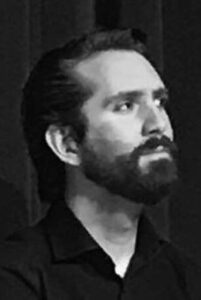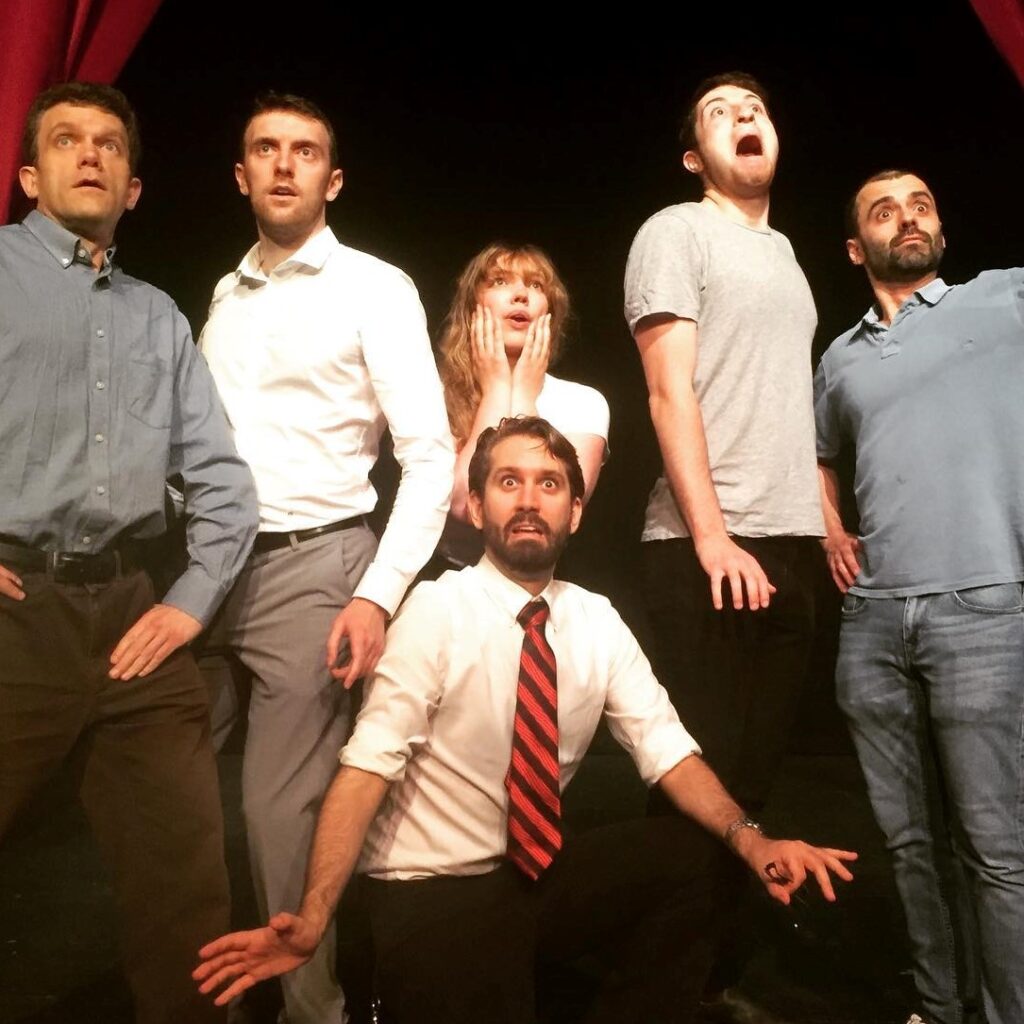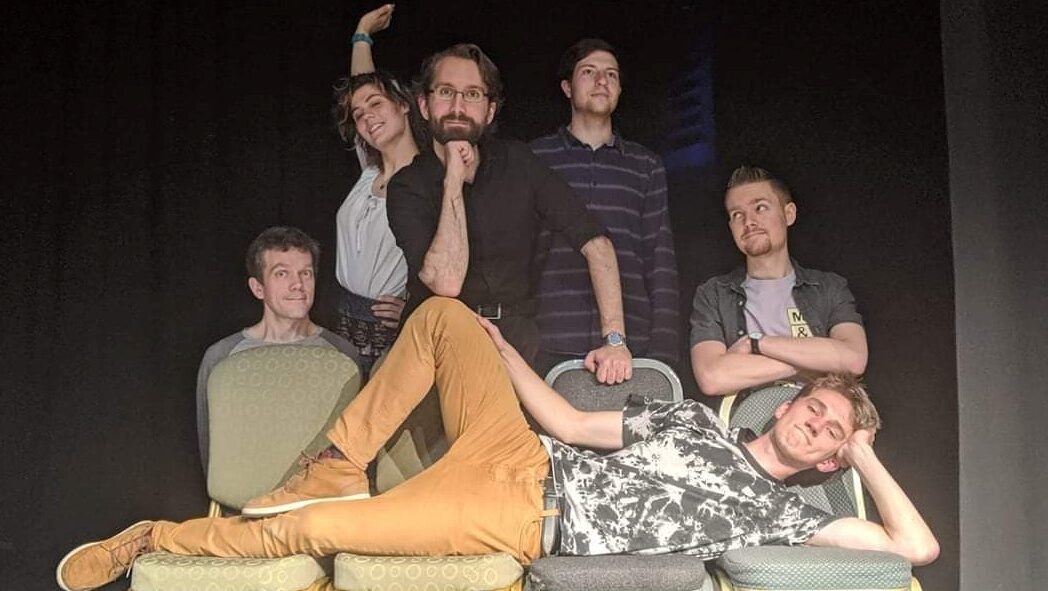Jonatan Rostén has been bringing drama and laughter to Impronauts audiences for years: I wanted to find out how he does it.
You’ve been performing with the Impronauts and others for some years now. Thanks for agreeing to share your experiences and thoughts!
What type of performance first put you on a stage? Could you tell us a bit about the range of shows and roles you’ve been a part of?

Most of my stage career has been based on music. There are awkward VHS-tapes of six year old me singing at primary school events, refusing to let the guitarist end the song. I went to a music school and was pretty comfortable on stage and singing, and when I got to university, I got into some musical and pantomime-like shows. I keep getting cast as evil or canonically ugly people, maybe I should take that as a hint [Never! -Ed]. Once in Cambridge, I’ve mostly ended up doing operettas with the Gilbert and Sullivan Society (shoutout). Eventually, in the lull between shows, I looked into the Impronauts and got hooked on developing characters and narratives quickly and intuitively.
I believe your formal education is in Physics – how do you find that meshes with acting, music, improvisation and comedy? Does science ever inform your art; does art help your science?
For me, I find them to be almost completely separate. I don’t always know how much the audience knows about physics or science, and I often don’t feel like keeping track of it, so any overlap between the two, I tend to make farcical or caricature. I think the two sides provide respite from each other.

Jonatan, you once mentioned a form of part-improvised Swedish pantomime you had been involved with – can you describe it?
Find what makes every scene, show, or character unique and lean into it
Ah, the Spex. It’s a pantomime, except instead of fairy tales, they are alternative takes on historical events and people. The three shows I was on stage for were about Leonardo da Vinci, Cortez, and Pompeii. They were fundamentally scripted shows, that we spent more than a year on from writing to last performance, so we had a lot of time to develop characters and rewrite the script. However, it is also traditional for anything that the audience shouts to be incorporated as direction (and the audience is encouraged to shout), which keeps you on your toes just as much as fully improvised performances can.
Within the Impronauts, you’ve done a tonne of shows as an improviser, and you’ve also created improvised musical accompaniment for several. How is it to create music for a show? Do you feel you’re responding to the scene, or do you also help to steer it? Do you feel that improvising as an actor helps you to create a sound-track?
Doing the music for an Improv show is great. You have a lot of freedom in what to do, you can be completely reactive and just go with the flow that the actors are providing, or you can drive the plot in the direction you want, or simply mess with the actors by throwing in surprising music. Being an actor as well gives me a good sense of what a scene needs, and the confidence to enact it.

What insight would you offer a new improviser to help them on their journey? What about to someone starting to provide improvised musical accompaniment?
Everyone has their own style and enjoys different things. Find what makes every scene, show, or character unique and lean into it. As with any art form, Improv can be funny, epic, meaningful, impressive or anything in between.
Finally, please pitch me a show!
I want a truly epic show, with drama as the centrepiece. Maybe a gritty 1800s political drama (or you know, 1400s or the year 2200), with betrayal as a cornerstone, not just a panicked plot twist. Who will give in, and steal the crown jewels or sell out their brother or give up the plans to the Eiffel tower?
Sounds awesome, Jonatan. I think I’ll steal the idea. (Bwa-ha-ha!)
